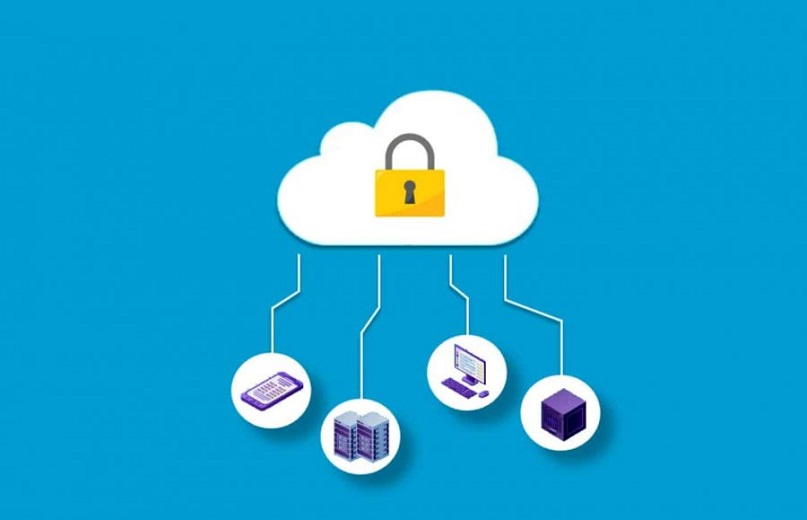As Bangladesh embraces the digital age, the demand for cloud platforms has surged, enabling businesses to store, process, and manage data efficiently. The adoption of cloud computing has transformed how organizations operate, providing scalable resources and greater flexibility. However, with the increasing reliance on cloud technologies comes the critical need for Cloud Platform Security in Bangladesh. Ensuring the protection of sensitive information, systems, and applications in the cloud is essential to maintaining trust, regulatory compliance, and operational stability. As businesses in Bangladesh increasingly adopt cloud services, the focus on Cloud Platform Security in Bangladesh becomes vital to protect against evolving cyber threats and ensure data integrity.

In this article, we will explore the importance of Cloud Platform Security in Bangladesh, the challenges faced by businesses, and how organizations can enhance their security posture to protect their cloud-based infrastructure.
The Importance of Cloud Platform Security in Bangladesh
With the rise of digital transformation, businesses in Bangladesh are increasingly using cloud platforms to grow, improve efficiency, and save money. Cloud computing provides many advantages, including easy access to data, reduced operational costs, and the ability to scale resources according to demand. However, these benefits also come with inherent security risks, such as unauthorized access, data breaches, and compliance issues.
Cloud Platform Security in Bangladesh is crucial for maintaining the integrity, confidentiality, and availability of data and systems. It protects businesses from cyber threats and malicious activities, which can lead to significant financial losses and damage to reputation. For all businesses in Bangladesh, from small startups to large enterprises, prioritizing Cloud Platform Security in Bangladesh is essential to prevent costly disruptions and safeguard their valuable digital assets.
In todayâs digital landscape, the importance of Cloud Platform Security in Bangladesh cannot be overstated. As more companies rely on cloud services, the risks of security breaches increase. Implementing strong security measures, such as robust authentication and data encryption, helps protect sensitive information and builds customer trust. Ensuring cloud security is vital for maintaining business continuity and achieving long-term success in a competitive market. By focusing on Cloud Platform Security in Bangladesh, businesses can effectively mitigate risks and enhance their operational resilience.
The Role of Cloud Security in Business Growth
Cloud Platform Security in Bangladesh plays a significant role in supporting business growth and innovation. As companies in Bangladesh leverage cloud solutions to expand their operations, enhance productivity, and improve customer experiences, they must also prioritize security to build and maintain trust with stakeholders. Ensuring that cloud environments are secure fosters confidence among customers and partners, encouraging collaboration and investment. Moreover, a strong security posture can help organizations avoid costly breaches that could hinder growth and lead to legal and regulatory repercussions.
Key Cloud Security Challenges in Bangladesh
While cloud platforms offer unparalleled advantages, they come with unique security challenges that businesses in Bangladesh must address. Understanding these challenges is the first step in implementing effective security measures.
- Data Breaches
Data breaches are one of the most significant threats to cloud security. Cyber criminals often target cloud environments to steal sensitive information, including personal data, financial records, and intellectual property. A data breach can occur due to various reasons, including poor access controls, insecure APIs, or vulnerabilities in cloud infrastructure. Without proper security measures, businesses risk exposing their critical data to unauthorized users, leading to significant financial and reputational damage.
- Compliance with Regulations
Bangladesh is witnessing a growing emphasis on data protection regulations. As more businesses move their operations to the cloud, they must comply with both local and international standards, such as the General Data Protection Regulation (GDPR) and Bangladesh’s own data protection laws. Failure to meet these regulatory requirements can result in hefty fines, legal consequences, and reputational damage. Organizations must stay updated on evolving regulations to ensure compliance and protect sensitive data.
- Insecure APIs
Cloud platforms rely on Application Programming Interfaces (APIs) for communication between applications and services. However, insecure or poorly configured APIs can create vulnerabilities that cyber criminals can exploit. APIs can serve as a gateway for unauthorized access if not properly secured. Organizations need to implement robust security measures for their APIs to prevent unauthorized access and ensure data protection.
- Lack of Cloud Security Expertise
Many businesses in Bangladesh face challenges due to the shortage of skilled cloud security professionals. Implementing effective cloud security requires in-depth knowledge of security practices, tools, and technologies. Without proper expertise, organizations may struggle to identify and mitigate security risks. This shortage of talent can hinder the ability of businesses to effectively secure their cloud environments and respond to emerging threats.
- Multi-Cloud and Hybrid Environments
As organizations adopt multi-cloud and hybrid environments to optimize their operations, managing security across diverse platforms can be challenging. Each cloud provider may have different security protocols, and ensuring consistent security measures across multiple platforms requires careful planning and coordination. Businesses must implement a unified security strategy that addresses the unique risks associated with each environment to mitigate vulnerabilities effectively.
Enhancing Cloud Platform Security in Bangladesh
To overcome these challenges, organizations must adopt comprehensive strategies to secure their cloud environments. Here are some best practices to strengthen Cloud Platform Security in Bangladesh:
- Data Encryption
Encrypting sensitive data, both in transit and at rest, is crucial to preventing unauthorized access. Encryption ensures that even if cyber criminals intercept data, they cannot read or misuse it without the decryption keys. Implementing encryption protocols such as Advanced Encryption Standard (AES) can significantly enhance data security. Additionally, organizations should use secure protocols such as HTTPS and TLS for data transmission to protect against eavesdropping.
- Access Control and Identity Management
Implementing strict access controls and identity management solutions helps organizations restrict access to cloud resources. By using Multi-Factor Authentication (MFA) and Role-Based Access Control (RBAC), businesses can ensure that only authorized personnel can access critical systems and data. This layered approach to authentication adds an extra level of security, reducing the risk of unauthorized access. Additionally, organizations should regularly review and update access permissions to minimize the potential for insider threats.
- Regular Security Audits
Conducting regular security audits and assessments allows organizations to identify vulnerabilities in their cloud infrastructure. These audits help businesses stay compliant with regulations and proactively address security weaknesses. Engaging third-party security experts can provide an unbiased assessment of the organizationâs security posture and identify areas for improvement. Additionally, organizations should implement continuous monitoring to detect and respond to potential threats in real time.
- Monitoring and Threat Detection
Implementing real-time monitoring and advanced threat detection tools can help businesses detect and respond to potential security incidents before they escalate. Security Information and Event Management (SIEM) systems provide valuable insights into suspicious activities, allowing organizations to mitigate risks promptly. By leveraging artificial intelligence (AI) and machine learning (ML) technologies, organizations can enhance their threat detection capabilities and respond to evolving threats more effectively.
- Security Awareness and Training
Training employees on cloud security best practices is essential to reducing human-related security risks. Employees often serve as the first line of defense against cyber threats, and their awareness can significantly impact an organization’s security posture. Businesses should educate their staff on recognizing phishing attacks, using strong passwords, and adhering to security protocols. Regular training sessions and simulated phishing exercises can help reinforce security awareness and ensure employees remain vigilant against potential threats.
- Incident Response Planning
Developing a robust incident response plan is critical for effectively managing security incidents when they occur. Organizations should establish clear protocols for detecting, responding to, and recovering from security breaches. This plan should outline the roles and responsibilities of team members, communication strategies, and steps for restoring normal operations. Regularly testing and updating the incident response plan will help ensure that organizations are prepared to handle security incidents efficiently.
- Partnering with Cloud Security Providers
To enhance cloud security, businesses in Bangladesh can partner with established cloud security providers. These companies specialize in offering security solutions tailored to cloud environments, helping organizations implement best practices and robust security measures. Cloud security providers can offer services such as threat intelligence, compliance monitoring, and vulnerability assessments, allowing businesses to focus on their core operations while ensuring their cloud environments remain secure.
- Using Security Automation Tools
Automation tools can significantly enhance cloud security by streamlining security processes and reducing the risk of human error. Automated security solutions can help monitor for threats, manage vulnerabilities, and enforce security policies consistently. By integrating automation into their security practices, organizations can improve their response times and reduce the workload on their security teams, allowing them to focus on strategic initiatives.
- Regularly Updating and Patching Systems
Keeping cloud systems and applications updated with the latest security patches is critical for protecting against vulnerabilities. Cyber criminals often exploit known vulnerabilities to gain unauthorized access, so organizations must have a proactive patch management strategy in place. Regular updates help ensure that security controls remain effective and that organizations are protected against emerging threats.
- Establishing a Data Backup Strategy
Implementing a robust data backup strategy is essential for ensuring business continuity in the event of a security breach or data loss. Organizations should regularly back up critical data and store it securely, both on-site and off-site. This redundancy ensures that businesses can quickly recover their operations in the face of cyber incidents, minimizing downtime and potential losses.
Conclusion
In an age where data breaches and cyber threats are on the rise, adopting a proactive approach to Cloud Platform Security in Bangladesh is paramount. By leveraging advanced security technologies, investing in employee training, and implementing best practices, organizations can create a secure cloud environment that supports their growth and innovation.
As businesses in Bangladesh continue to navigate the complexities of the digital landscape, the importance of robust Cloud Platform Security in Bangladesh cannot be underestimated. It is not just about protecting sensitive data; it is about fostering trust with customers and partners, maintaining regulatory compliance, and ensuring operational resilience. Organizations that prioritize their cloud security posture will not only protect their valuable assets but also gain a competitive edge in the market.
Ultimately, embracing Cloud Platform Security in Bangladesh is a strategic investment in the future. By addressing current security challenges and adapting to evolving threats, businesses can unlock the full potential of cloud technologies, driving efficiency, productivity, and long-term success in Bangladeshâs vibrant digital economy. The commitment to security will empower organizations to innovate fearlessly, paving the way for a more secure and prosperous digital future.



